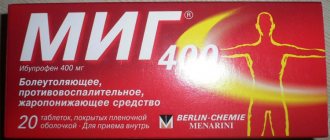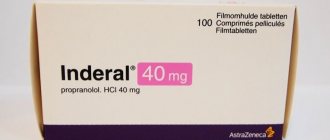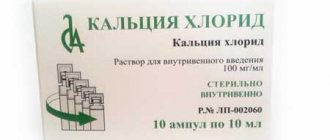Panzinorm - it belongs to the group of enzymatic drugs and is an analogue of Pancreatin. This drug has high lipase activity and is used for various gastrointestinal diseases associated with a decrease in the external secretory function of the digestive organs.
Panzinorm improves the process of food digestion, ensuring better absorption of nutrients and stimulating the pancreas to secrete its own enzymes - in particular pancreatin.
This medicine perfectly combats various unpleasant symptoms of pancreatic diseases:
- belching;
- a feeling of heaviness or fullness in the stomach after eating;
- increased gas formation.
For what diseases is it recommended to take this drug? What does panzinorm help with? In order to understand this issue, it is necessary to study the composition and medicinal properties of this medication.
Pharmacological action and composition of the drug
Panzinorm is a combined drug that has an enzymatic effect, as it contains three optimally balanced pancreatic enzymes - lipase, amylase and protease. With the help of these substances, the normal breakdown of fats, proteins and carbohydrates in the intestines is ensured.
This drug is successfully used to treat various pathologies associated with impaired digestion of food in children and adults. Panzinorm contains Pancreatin enzymes, which is why it is sometimes called “combined Pancreatin”.
The active ingredients contained in this drug are obtained from the pancreas of cows or pigs - this means that the components of the drug are completely natural and balanced. The special acid-resistant coating covering the capsules and tablets of the drug dissolves only in the small intestine. When released, Panzinorm's enzyme substances mix with partially processed food in the intestines and help it digest it better.
Amylase breaks down complex carbohydrates into dextrin and monosaccharides, lipase ensures the breakdown of fats into glycerol and fatty acids, and the protease substance decomposes protein molecules into amino acids. The effectiveness of this medicine drops sharply if the acidity in the duodenum decreases.
Panzinorm normalizes the process of food digestion, helps the body better absorb the nutrients it needs, stimulates the pancreas and stomach to produce its own enzymes, and increases bile production.
This medicine effectively eliminates the symptoms that appear in case of incomplete digestion of food:
- burping;
- discomfort and pain in the stomach and intestines;
- diarrhea;
- flatulence.
Dosage and release form
Panzinorm is available in the form of tablets and capsules for oral use.
Country of origin: Slovenia KRKA “NOVO MESTO”.
You can purchase this medication at a pharmacy. Panzinorm is sold in the form of capsules in blisters of 3, 7, 8, 12 pieces per package with an instruction insert for the drug. One capsule contains:
- amylase – 7200 units;
- lipase – 10000 units;
- protease – 400 units.
This medicine is also sold in the form of tablets, which are sold in 10.30 pieces per package with instructions. One tablet contains:
- amylase – 12000 units;
- lipase – 20,000 units;
- protease – 900 units.
Capsules Panzinorm 10,000 summary (instructions for use) in photographs
Photo of instructions for use of panzinorm 10,000 capsules, part 1
Photo of instructions for use of panzinorm 10,000 capsules, part 2
Photo of instructions for use of panzinorm 10,000 capsules, part 3
Photo of instructions for use of panzinorm 10,000 capsules, part 4
Photo of instructions for use of panzinorm 10,000 capsules, part 5
Photo of instructions for use of panzinorm 10,000 capsules, part 6
Directions for use and doses
Tablets and capsules of the drug must be taken orally directly with meals. The medicine is taken whole; there is no need to chew tablets or capsules. After taking this remedy, you should drink it with water.
The duration of treatment and dosage of this medication is determined by the doctor individually for each patient, depending on age and other indications.
At the initial stage of treatment, the minimum daily dose of Panzinorm for an adult is 1-2 capsules/tablets 3-4 times a day, during the main meal (breakfast, lunch and dinner) or a light snack. If necessary, you can increase the single dose of the drug. The effectiveness of the drug is achieved by taking a daily dose of 4-15 capsules (2-7 tablets). For cystic fibrosis, it is recommended to prescribe smaller doses of this medication.
For the treatment of children over 3 years of age, Panzinorm is used in the amount of 1-2 capsules, directly during a meal or light snack.
Treatment can last from several days (in case of impaired digestion of food as a result of errors in the patient’s dietary intake) to several weeks, months and even years (in case of the need for constant replacement treatment).
When should you take Panzinorm or Creon?
If we compare the list of indications for both drugs, we can safely say about Panzinorm and Creon: there are no differences. This is not surprising, because enzyme replacement agents are prescribed when the natural secretion of the pancreas is reduced or absent, namely when:
- chronic inflammation of the pancreas (pancreatitis),
- cystic fibrosis,
- obstruction of the pancreatic or bile duct,
- Shwachman-Diamond syndrome,
- age-related digestive disorders.
These enzyme preparations are also indicated after surgical removal of the stomach or its resection and pancreatectomy.
How to take enzyme products?
The dosage of the drug, depending on age and condition, is determined by the doctor. It is believed that an adult should receive between 20,000 and 50,000 units of lipase per meal. It is better to drink Creon or Panzinorm during meals without chewing. If there are problems with swallowing the capsule, you can open it and mix the microgranules with liquid food. Try not to chew them so that they enter the intestines intact.
Contraindications
Both medications are contraindicated in acute conditions of the pancreas (acute pancreatitis or exacerbation of chronic pancreatitis), as well as in case of intolerance to their components. The difference between Panzinorm and Creon in terms of contraindications is that it is not prescribed to children under 3 years of age and to children with cystic fibrosis under 15 years of age.
It’s hard to say which is better for a pregnant woman to drink Creon or Panzinorm.
Unfortunately, there is not enough clinical data to confirm the complete safety of these drugs for expectant or nursing mothers. Therefore, only a doctor can decide this issue, taking into account the possible risks and benefits of taking the drug. comparison table
| * | Creon | Panzinorm |
| Shell | Capsules with pellets | Capsules with pellets |
| Dosage Options (Lipase Activity Units) | 10000, 25000, 40000 | 10000, 20000 |
| Manufacturer country | Germany | Slovenia |
| Price | Higher | Below |
What is more profitable: Panzinorm or Creon?
Panzinorm is produced in Slovenia by KRKA, and Creon is produced in Germany by Solvay Pharmaceuticals and Abbott. Perhaps this determines the difference in the price of drugs by almost 2 times. In our pharmacies, a package of Creon 10,000 (20 capsules) can be purchased at a price of 255 to 300 rubles, while Panzinorm of the same activity costs from 119 to 130 rubles.
Indications for use
This medication is used in the treatment of the following gastrointestinal diseases:
- with a decrease in the external secretory function of the digestive organs, in particular the pancreas (cystic fibrosis, chronic pancreatitis);
- for chronic inflammatory-dystrophic pathologies of the liver, stomach, gall bladder, intestines;
- in preparation for ultrasound and x-ray examination of the digestive organs;
- for better digestion of food in patients with impaired chewing functions (damaged gums and teeth, addiction to dentures), in patients leading a sedentary lifestyle;
- for certain conditions of the digestive system that arise as a result of irradiation or resection of the gastrointestinal tract, and accompanied by impaired digestive functions (diarrhea, flatulence, belching).
Side effects
Taking this medicine may cause the following side effects:
- On the part of the skin: an allergic reaction in the form of redness of the skin, rashes of various types and itching.
- From the respiratory system: sneezing, difficulty breathing, obstruction of the airways of the respiratory tract.
- From the digestive system: vomiting, pain in the epigastric region, nausea, diarrhea, constipation, itching of the mucous membrane of the mouth and rectum.
- From the urinary system: an increase in the amount of lactic acid in the patient’s urine and blood.
Panzinorm is allowed to be taken by those patients whose activities involve driving a car and other complex devices and mechanisms, since this drug does not affect the reaction rate.
In case of a drug overdose, the following symptoms occur:
- diarrhea appears;
- nausea and vomiting;
- urine acquires a sharp, unpleasant odor;
- itching develops;
- rectal irritation.
If these signs appear in a patient after taking a large dose of the drug, it is better to consult a doctor immediately.
If you take Panzinorm correctly, based on the recommendations of your doctor, then the likelihood of adverse reactions is reduced to a minimum.
Side effects
Gastrointestinal tract: frequency not determined - strictures of the colon, cecum and ileum; often - bloating, vomiting, nausea, constipation, diarrhea; extremely often – pain in the abdominal area.
Typically, gastrointestinal disorders are associated with an underlying illness. The incidence of symptoms such as diarrhea and abdominal pain was lower or equal to that observed with placebo.
As for strictures of the cecum, ileum and colon, they were observed in persons suffering from cystic fibrosis who received pancreatin preparations in large doses.
- Immune system : frequency not determined - anaphylactic reactions (hypersensitivity).
- Subcutaneous tissues, skin : frequency not determined - urticaria, itchy skin; uncommon – skin rash.
In most cases, allergic reactions were observed on the skin, but other manifestations of allergies were also recorded. Reports of these side effects were received during post-marketing use and were spontaneous. The available information is insufficient to accurately estimate the incidence of cases.
When using Panzinorm in children, no specific adverse reactions were observed. The type, frequency and severity of side effects in children with cystic fibrosis were similar to those in adults.
Overdose
Exceeding the prescribed dosage of Panzinorm leads to a deterioration in the patient’s general condition and an increase in the manifestation of side symptoms. A negative reaction of the body can manifest itself in the form of pathological processes in the immune or urinary system, as well as in the digestive system. The consequences of an overdose are eliminated by drug withdrawal or symptomatic treatment.
The consequences of an overdose can be the following pathological conditions:
- increased levels of uric acid in the blood and urine;
- proliferation of fibrous formations in the large intestine (with cystic fibrosis);
- allergic reactions of varying degrees of intensity;
- pain in the digestive system, constipation or diarrhea, nausea or vomiting;
- the appearance of irritation in the anus.
Contraindications
It is forbidden to take Panzinorm if:
- hypersensitivity to any drug ingredient;
- individual intolerance;
- any form of pancreatitis.
During pregnancy
There are no clinical data on the use of drugs containing pancreatic enzymes in pregnant women.
Animal studies have not shown absorption of porcine-derived enzymes, and therefore toxic effects on fetal development and reproductive function are not expected. Thus, it is possible to prescribe the drug during pregnancy, but with caution.
In animal studies, no systematic negative effects of pancreatic enzymes were identified, so no harmful effects of the drug on the child through mother's milk are expected. In other words, taking pancreatic enzymes is not prohibited during breastfeeding.
If a doctor prescribes the drug to a woman during pregnancy and lactation, the drug is taken in a dosage sufficient to maintain normal nutritional status.
Use during pregnancy and lactation
Pregnant and breastfeeding women should avoid using this drug.
The use of this remedy during pregnancy and breastfeeding is permitted only in cases where the expected positive result from treatment largely exceeds the risk of developing any disorders in the pregnant/lactating woman or her child.
Panzinorm should not be taken by children under 15 years of age if they develop concomitant cystic fibrosis. This drug is based on pancreatin and is contraindicated for children under 3 years of age.









